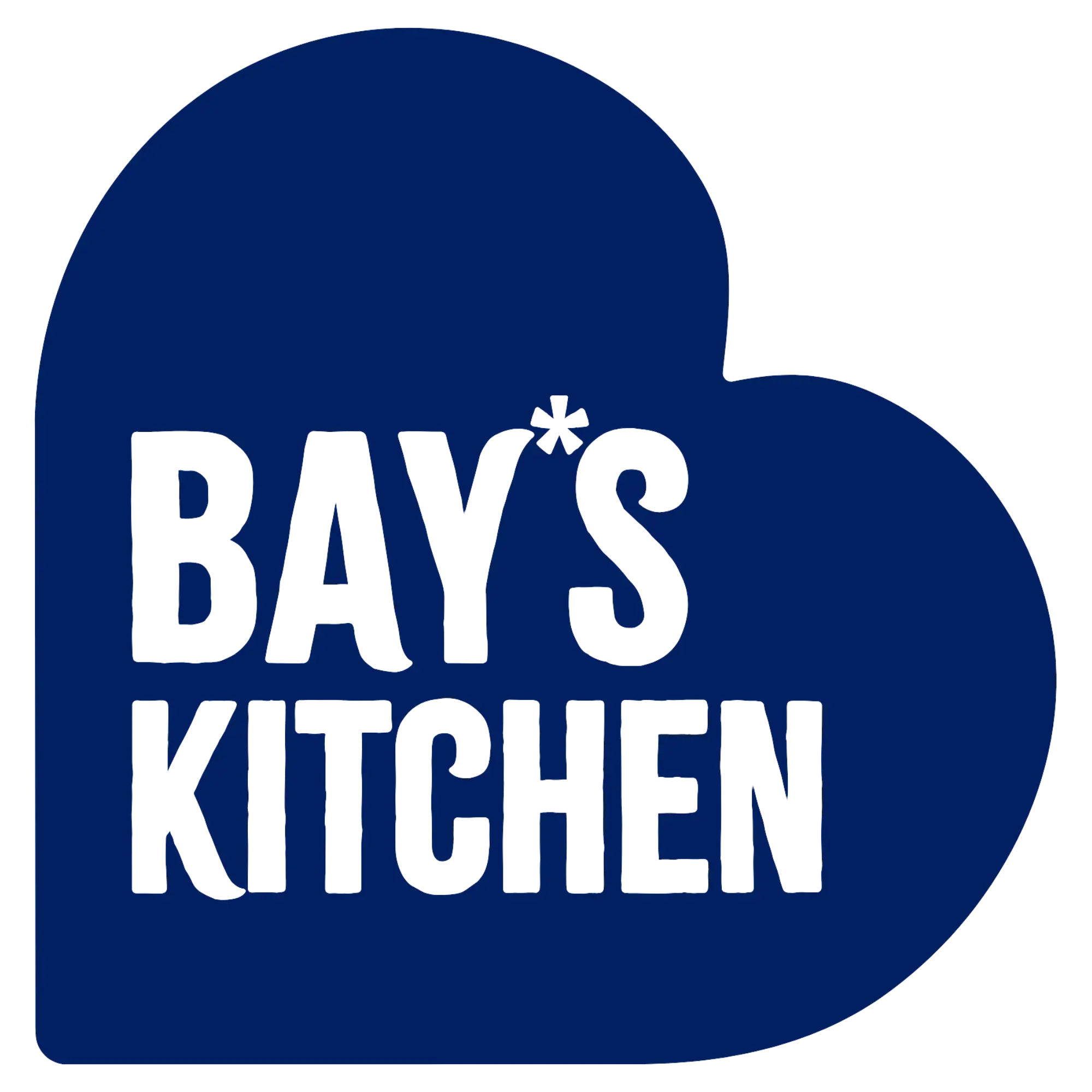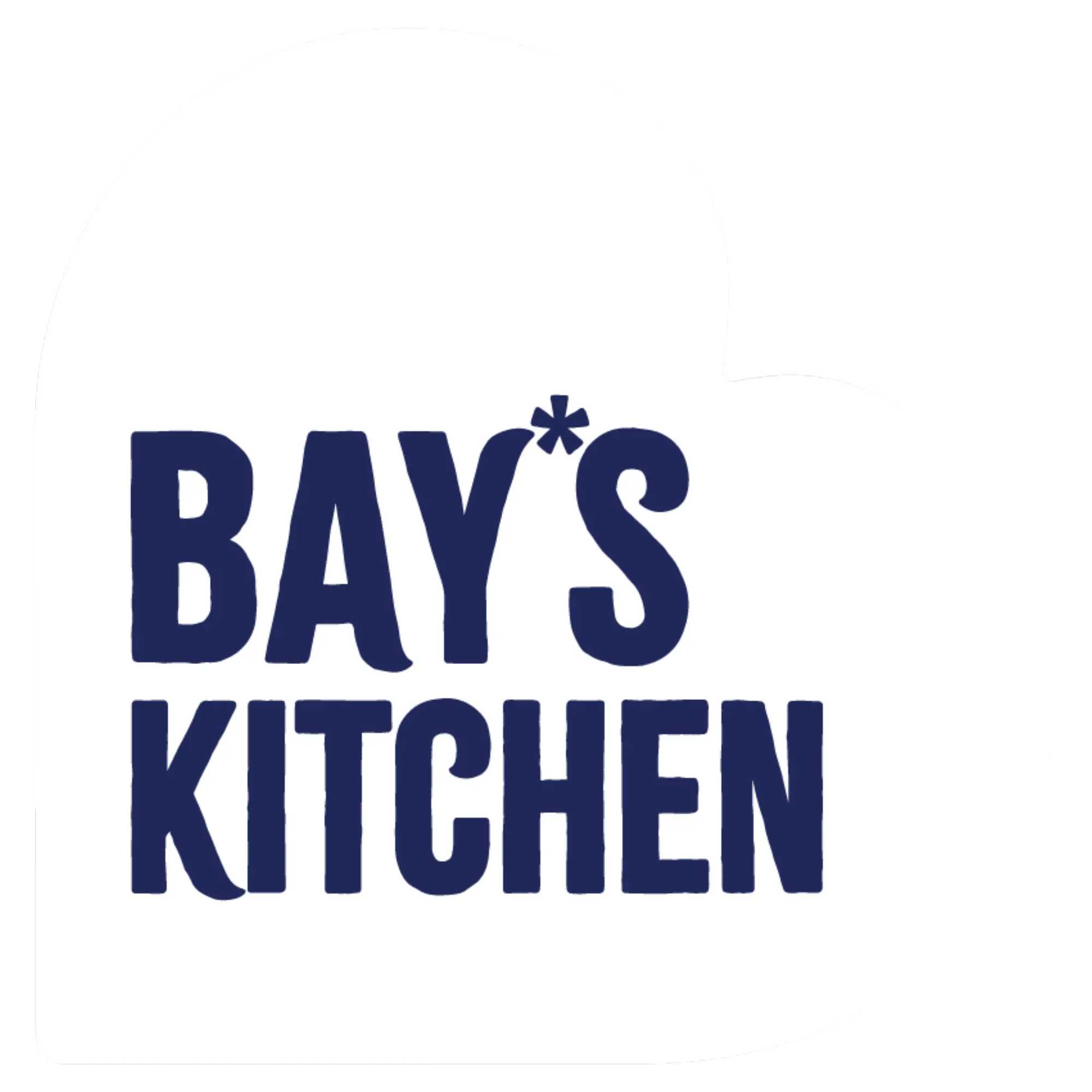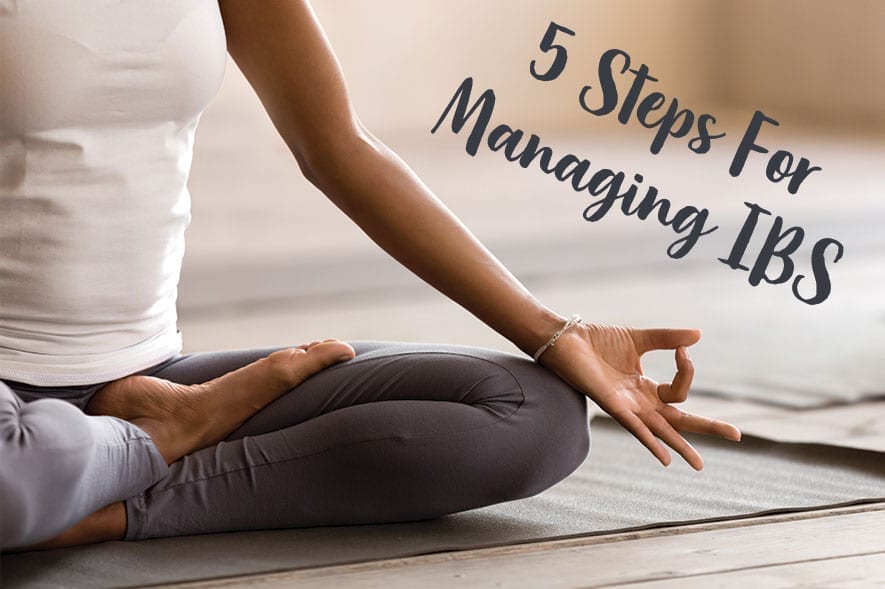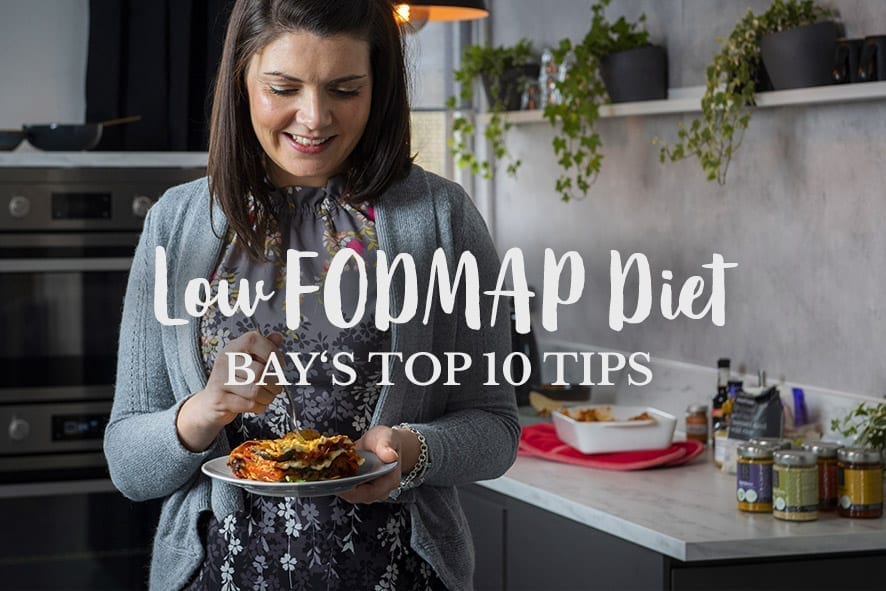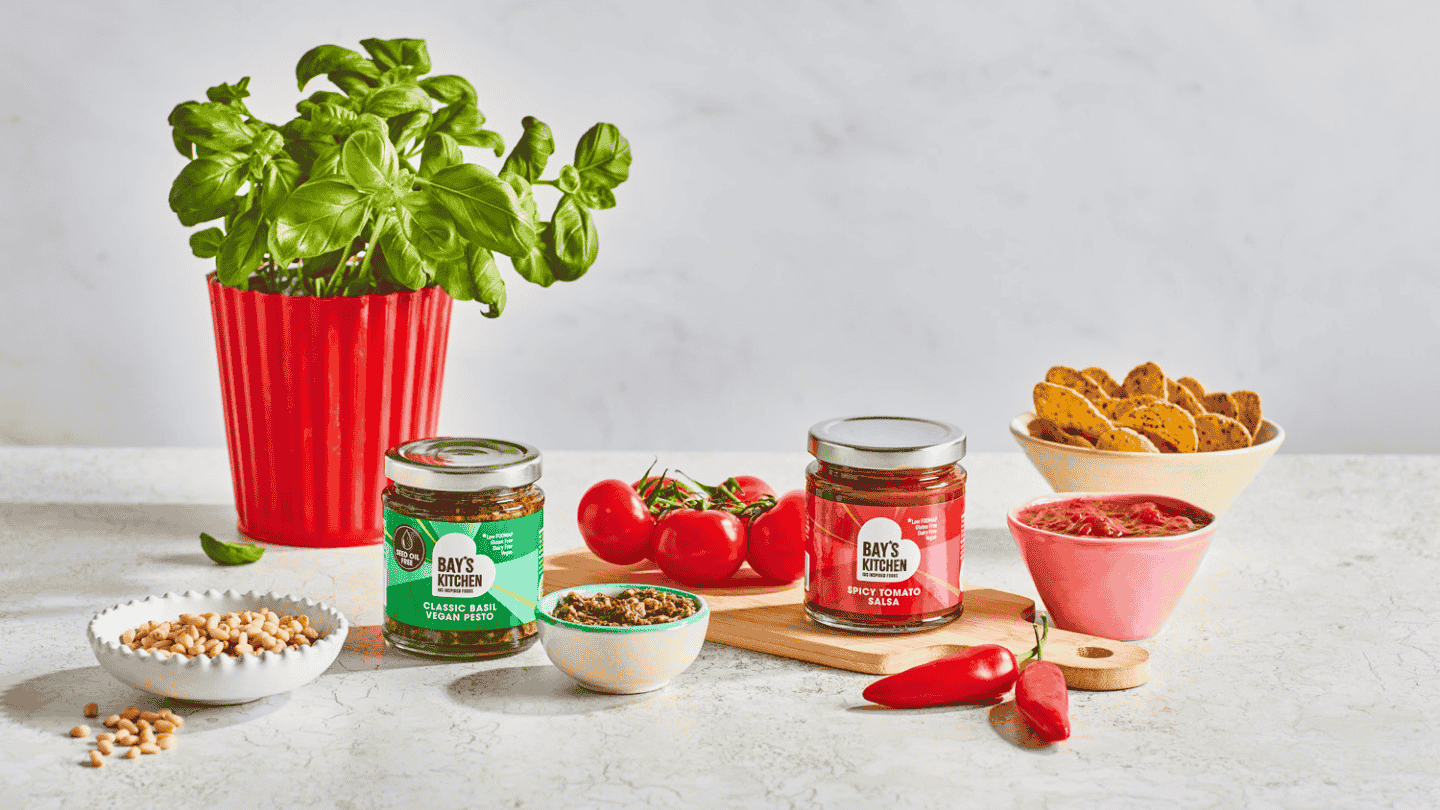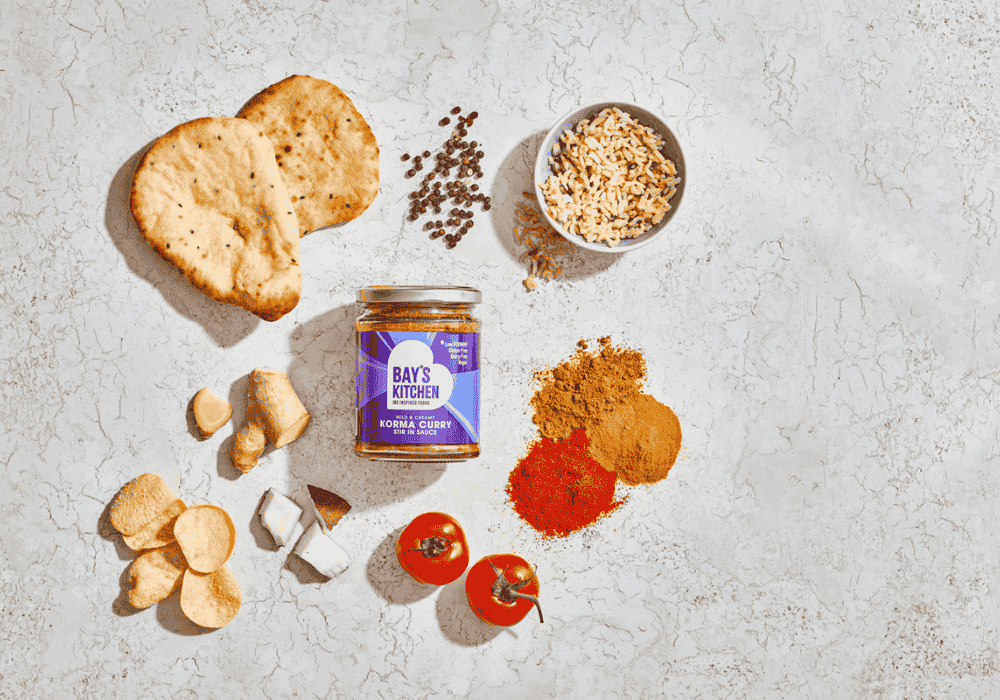The Low FODMAP Diet is a popular approach to managing IBS symptoms, but it’s not necessarily the first step that’s recommended. So what comes first in terms of symptom relief?
It was over ten years ago that a team of researchers at Monash University discovered that a group of carbohydrates (known as FODMAPs) could trigger IBS symptoms. Fast forward to 2020 and the low FODMAP diet is now one of the most popular approaches to managing IBS, with research showing that a low FODMAP diet can improve symptoms in 3 out of 4 sufferers.Whilst this makes the diet sound like a no-brainer, it’s not necessarily the first step to take after a diagnosis of IBS. In the U.K. for example, the FODMAP diet is only recommended if symptoms persist after trying other changes to diet and lifestyle.
Why Shouldn’t I Just Start With the Low Fodmap Diet?
It’s important to be aware that the low FODMAP diet isn’t suitable for everyone – so it’s best to consult a dietitian first. Second the diet is tricky to follow and needs dietetic support to ensure it contains all the nutrients you need to stay healthy. Third – it’s not always needed. In fact, simple steps such as reducing how much fatty and spicy foods you eat, lowering alcohol intake and adjusting the fibre in your diet can be effective in managing symptoms. We also have growing evidence that mind-body interventions like yoga and mindfulness programmes are also successful ways to manage symptoms. So what should you try first?
The average amount of time people reported suffering with symptoms before being diagnosed is 6.6 years!
Step 1 – Get a diagnosis
If you have IBS symptoms the very first step is to get a diagnosis from your doctor, as IBS symptoms are very similar to other conditions like coeliac disease, so it’s important to get the right diagnosis. In a survey of ~ 2,000 people with IBS conducted by the International Foundation for Gastrointestinal Disorders, the average amount of time people reported suffering with symptoms before being diagnosed was 6.6 years. Not only does delaying diagnosis have a huge impact on daily life, it stops you getting on the path to feeling better.
Step 2 – Get to know your IBS
IBS can be categorised into different types according to your the type of poo (stool) you experience most often. The 3 main types are IBS-C (constipation), IBS-D (diarrhoea) and IBS-M (mixed). It’s helpful to understand and figure out your IBS-type, as each has different triggers and different tools which can help.
Step 3 – Try simple changes to your diet
For some people with IBS, simple dietary changes are all that’s needed to improve symptoms. The British Dietetic Association recommends trying these steps;
- Eat three regular meals a day
- Try not to skip any meals or eat late at night (smaller meal sizes may ease symptoms)
- Limit alcohol intake to no more than two units per day and have at least two alcohol free days a week
- Reduce intake of caffeinated drinks e.g. no more than two mugs (three cups) a day
- Reduce intake of fizzy drinks
- Drink at least eight cups of fluid per day, especially water or other non‑caffeinated drinks,
- Cut down on rich or fatty foods like chips, fast foods, pies, cheese, pizza, creamy sauces, snacks such as crisps, chocolate, cake and biscuits, spreads and cooking oils, and fatty meats such as burgers and sausages
- Reduce your intake of manufactured foods and cook from fresh ingredients where possible
- Limit fresh fruit to three portions per day (one portion is 80g)
You can access these steps as a downloadable PDF here.
Step 4 – Balance stress & prioritise relaxation
Research shows there is a strong association between stress levels and IBS symptoms – put simply, when you feel stressed, your gut feels it too. In fact, some studies show that people with IBS experience an exaggerated stress response, releasing higher levels of cortisol (the stress hormone) and experiencing corresponding gut symptoms.
A stress-free life isn’t possible, but learning to manage stress and increase your ability to adapt to stressful situations is helpful. If you’re not sure where to start, the mental health charity Mind has some excellent advice on learning to manage stress, including working out your triggers, addressing some of the causes, and learning to accept what you can’t change.
The next step is to work out which coping strategies are helpful for you. Gentle exercise, breathing exercises and mindfulness activities can all be effective in managing stress levels, so it’s worth investing some time to work out which activities help you to relax and stay calm under pressure. Try to plan in some time out for yourself each day, and give this the same importance as you would do work or social time.
Step 5 – Discuss next steps with your G.P. if there’s no change
If your symptoms persist after following these lifestyle and dietary changes it’s time to return to your G.P. to discuss next steps. In the U.K., most people will be able to get a referral to an NHS dietitian who can discuss the FODMAP diet with you.
There are also other options such as referral for CBT (cognitive behavioural therapy), a type of talking therapy which looks at how our thoughts affect behaviour, or gut-directed hypnotherapy which uses guided imagery and relaxation to help relieve pain and improve symptoms.
